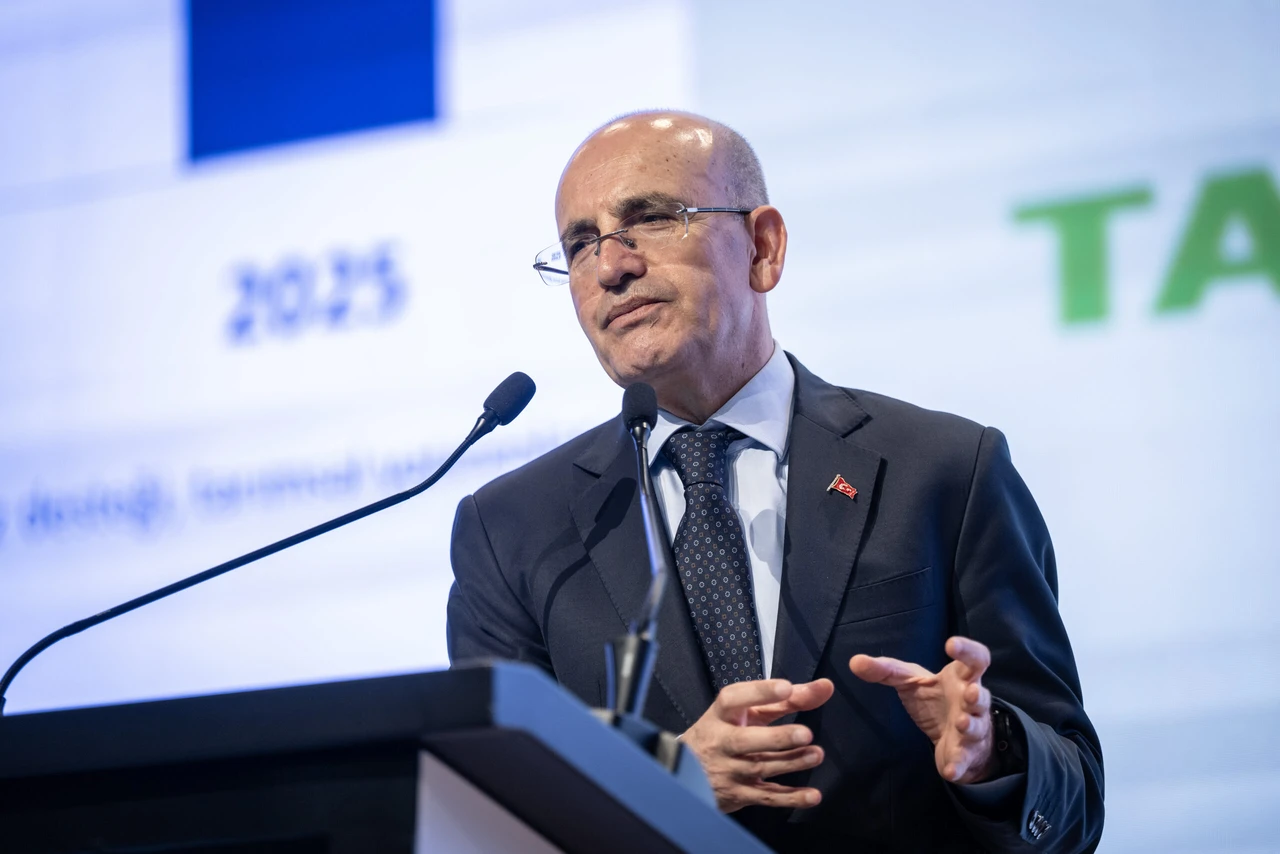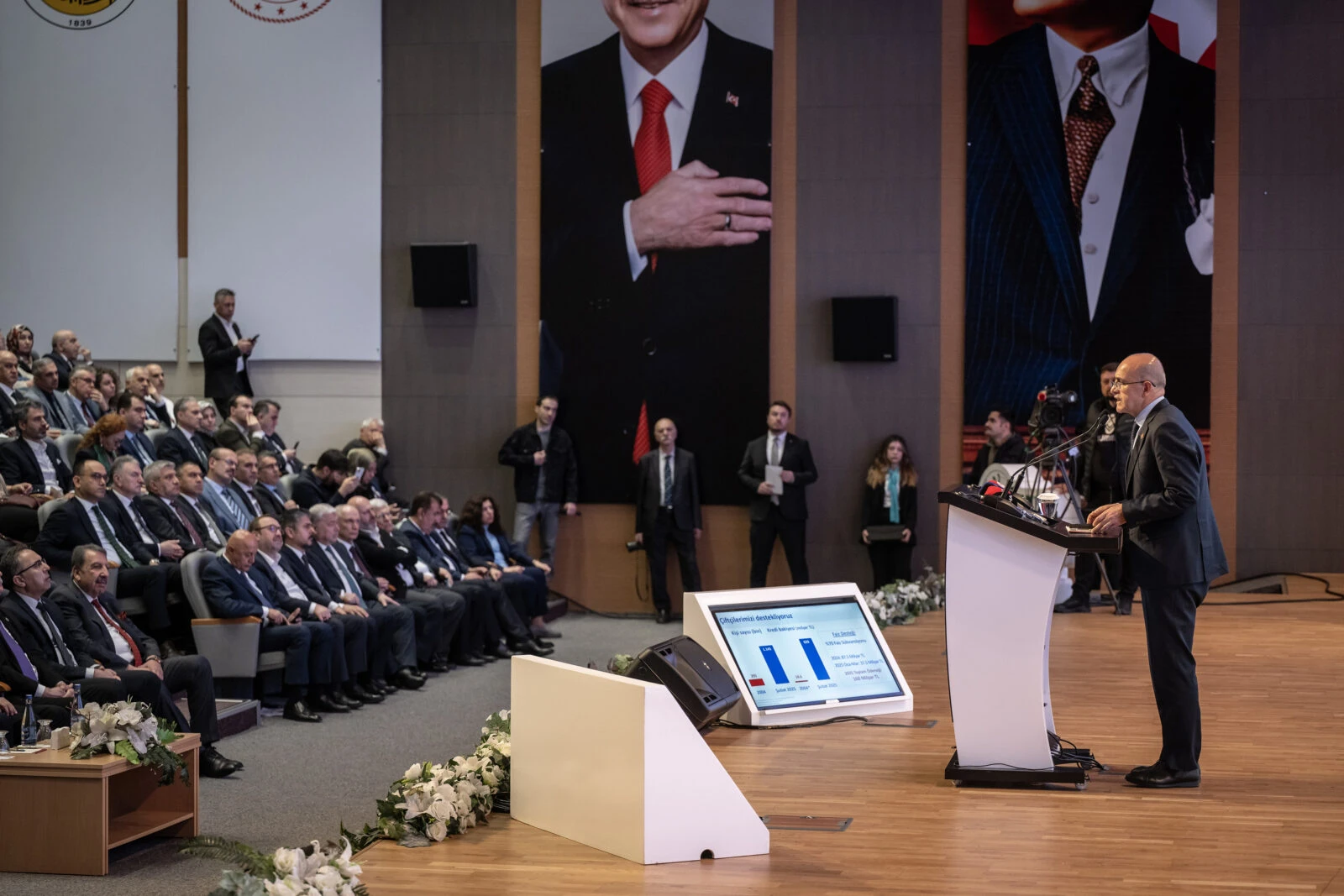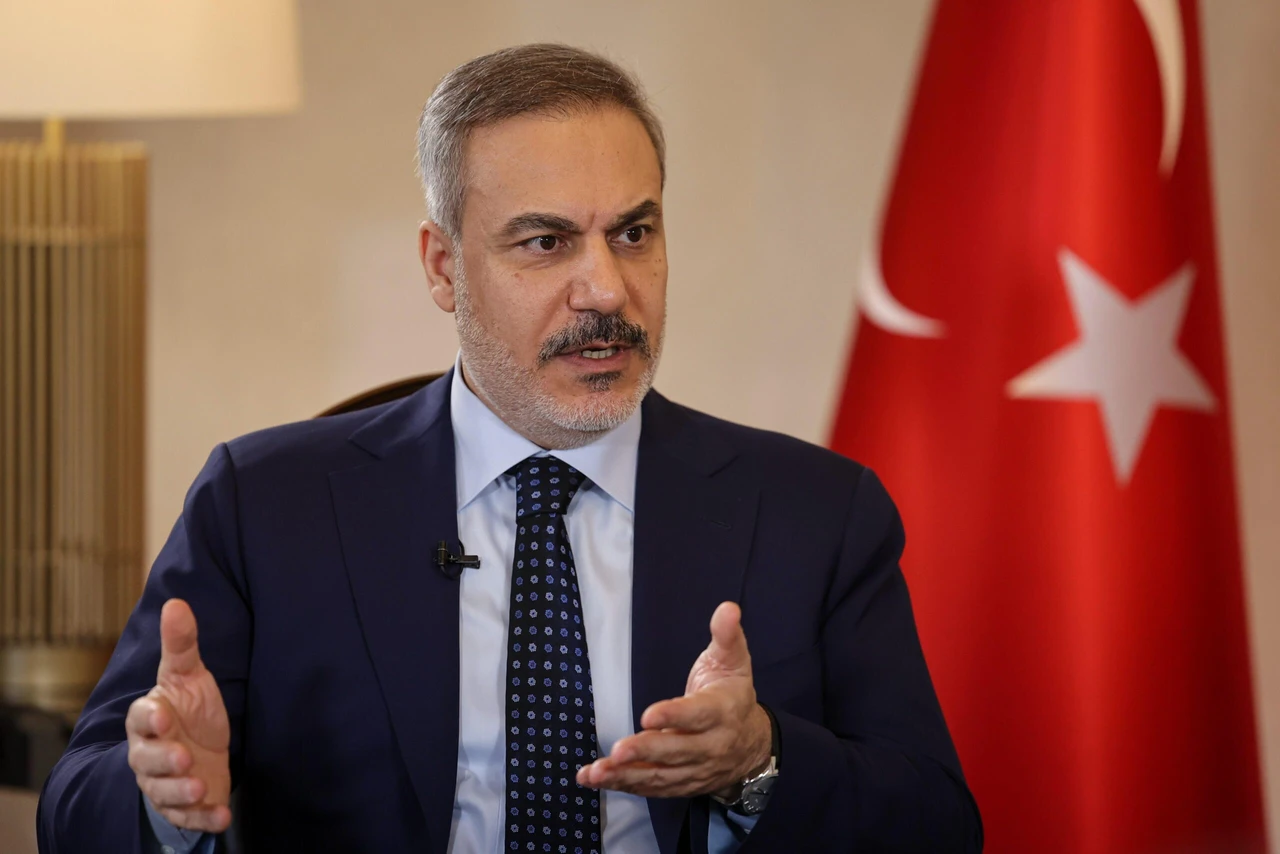Oil slump to narrow Türkiye’s deficit, budget discipline to curb inflation: Finance Minister
 Türkiye's Treasury and Finance Minister Mehmet Simsek delivers a speech at the Agricultural Economy Workshop, held at the General Directorate of Forestry as part of the 4th Agriculture and Forestry Council in Ankara, Türkiye, on Apr. 7, 2025. (AA Photo)
Türkiye's Treasury and Finance Minister Mehmet Simsek delivers a speech at the Agricultural Economy Workshop, held at the General Directorate of Forestry as part of the 4th Agriculture and Forestry Council in Ankara, Türkiye, on Apr. 7, 2025. (AA Photo)
Treasury and Finance Minister Mehmet Simsek said on Monday that the country will likely avoid major current account issues this year, thanks to declining global oil prices.
“Türkiye stands to benefit the most from falling energy costs,” he said, emphasizing that stable oil prices could prevent a rise in the deficit.
Türkiye’s trade figures reveal the significant weight of energy imports on the country’s foreign trade balance.
Data from the trade ministry shows that in March, exports covered just 76.3% of total imports. However, when energy was excluded, the coverage ratio improved to 89.1%, and excluding both energy and gold pushed it even higher to 93.3%.
This trend gains added relevance as global energy prices continue to decline. On Monday, international benchmark Brent crude dropped by around 3.8%, trading at $63.20 per barrel—its lowest level in four years.
Speaking at the Agricultural Economy Workshop of the 4th Agriculture and Forestry Council in Ankara on Monday, Simsek said public spending to recover from last year’s devastating earthquakes has reached $75–80 billion.
He warned that without strict fiscal discipline, inflation could have spiraled out of control. “If we had monetized the deficit, I leave it to reasonable minds to imagine where inflation would be,” he noted.

The finance chief stressed that Türkiye’s economic program is producing results, citing a drop in the current account deficit from $55.5 billion to $11.5 billion in a year. “We aim for a manageable deficit. If oil prices hold, this year’s target is within reach,” he added.
‘Inflation is the top priority’
Simsek also addressed inflation, projecting a strong disinflation trend through 2025. While headline inflation remains above 38%, he said core goods inflation had fallen below 20%. “This is our top priority. We’re determined to bring inflation to single digits by 2027,” he stated.
Acknowledging public criticism over spending, Simsek defended the government’s fiscal record.
“In 2023, we spent less than the approved budget for the first time in years. That’s a savings of ₺1.2 trillion ($31.57 billion),” he said, adding that critics either “aren’t listening or are acting in bad faith.”
In agriculture, Simsek highlighted the sector’s strategic importance for national security and pledged continued support. Direct and indirect financing for agriculture is expected to reach ₺706 billion in 2025, he said, equivalent to 1.15% of gross domestic product (GDP).
He also noted that Türkiye ranks seventh globally and first in Europe in agricultural output and remains a net food exporter. “This is one of the rare sectors where we consistently post a trade surplus,” he said.
On structural reforms, Simsek pointed to efforts in energy, emphasizing investments to reduce dependence on imports.
“In the last 20 years, we’ve spent nearly $1 trillion on oil and gas. Green transition isn’t a trend — it’s a necessity,” he said.



